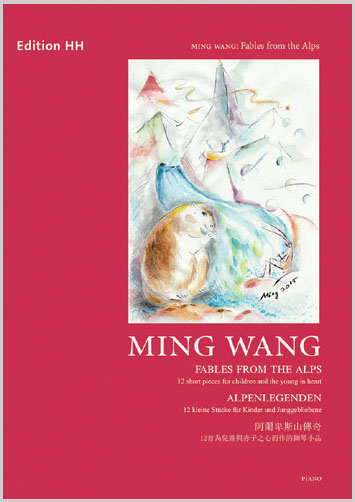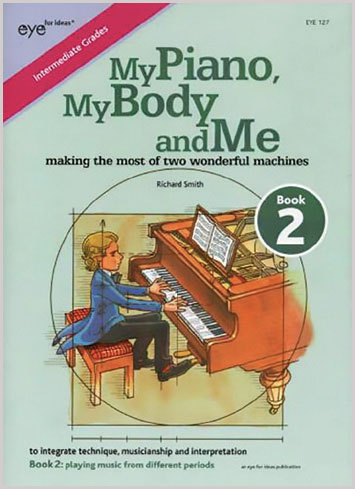
Sound Sketches, Volumes 1 to 3
Graham Lynch, EVC Music
£9.95 each
A thoughtful, three-volume set arranged in progressive bands, covering Grades 1 to 4. Each contains exquisitely crafted miniatures, complete with evocative titles – ‘Sleeping Cat’, ‘My Lonely Guitar’, and ‘Cavern (with Dragon)’ being my personal favourites – and carefully unobtrusive performance directions. This attractive collection treads a delicate musical line between the sultry, jazz voicings of ‘My Lonely Guitar’, and the altogether more contemporary, angular musical language of ‘Sunset at Gwenver’.
The overriding impression from playing through these songs is one of carefully crafted musicianship. The miniatures presented here are attractive, atmospheric and tonally diverse. Each presents a specific technical issue for young learners without seeming overly didactic in approach. Most of the pieces sit within a comfortable five-finger (or slightly extended) hand position, with only one or two shifts per movement, consistent with early grades.
My students found the visceral imagery particularly refreshing, coaxed on by the performance directions (‘If you've ever been on a canal boat’) especially after months of grappling with the abstract fugues and sonata movements of the exam syllabus.
Performance directions are included in a comforting mixture of Italian and English. In some places, the English is used to support and emphasise the Italian direction (molto rall – ‘very slow’), in other places, in addition to it (Tempo primo – ‘dramatic!’) and in some pieces, such as ‘Clouds’, to completely supplant the terms. Fingering suggestions are judicious, unobtrusive, and work well.
An ambitious and welcome transition for the early student.
Fables from the Alps
Ming Wang, Edition HH (HH 386)
£9.95
Fables from the Alps is a collection of 12 short pieces for ‘children and the young at heart’ from Austrian-Chinese composer Ming Wang. The cross-cultural pedigree of this volume is immediately evident from the cover. A striking xieyi hua watercolour of an alpine scene sets the tone. The collection is divided into two halves, conveniently titled Easier and Harder Pieces, starting from around post-Grade 2 level, and progressing on to the more challenging sides of Grades 5 and 6.
The titles are deliciously evocative of a land of fairy tales and wonder, with ‘The Day the Snow Fell’, ‘Eternal Ice’, and ‘Ptarmigan's Song’ particularly capturing the imagination of my students. The collection opens with the deceptively straightforward looking ‘Rustling Brook’. The initial Dorian tonality gives way to a series of increasingly quartal-voiced chords, sweeping away towards a threatened dissonance which is never fully realised, before being washed away by the opening Dorian motif.

Likewise, ‘The Day the Snow Fell’ is an atmospheric gem, centred around a Phrygian hue, with a shimmering sequence of resonances. Both pieces have a judicious level of fingering suggestions for their level and would present no challenge to smaller hands.
This colourful panoply of miniatures is far better than it needs to be. Wang achieves the impressive task of writing sophisticated, grown-up music, while still making it approachable and technically scalable by young learners. This is a collection which promises to stay with a student for a good part of their journey.
My Piano, My Body and Me
Richard Smith, Eye for Ideas (EYE 127)
£8.50
There's something almost geeky about this, which teenage me would have loved. This second book in the series takes the approach of introducing specific techniques through different periods in musical history. The Baroque introduces terraced dynamics, Classical initiates a debate about pulse and metre, and the Romantic period contains a discussion of una corda pedalling. Each discussion is illustrated with an original composition, which brings the technique and style together – the Baroque is crowned off with an homage to the ‘C minor Prelude’ from the Well-tempered Klavier, Classical with an alluring Haydn-inspired Minuet, and the Romantic by a Schumann-esque miniature.

The overall balance between music and explanatory text is around 60:40, concluding with two 20th-century-style pieces: ‘Itchy Fingers’, a Jelly Roll Morton-style ragtime, and ‘Waltz for no Particular Reason’, a Bill Evans-type up-tempo piece. The compositions range in difficulty from around Grades 4 to 6.
Each explanation comes complete with diagrams and carefully considered illustrations, supporting a detailed and comprehensive yet accessible text. This is a reference text which will serve students for years, not a quick work-through book. The factor that saves Smith's fascinating book from being just another reference book is the quality of the compositions, which are at once useful teaching tools and deliciously playable specimens.








